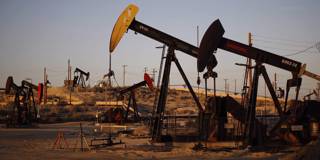Standard economic accounting methods have long suffered from a failure to capture the full effects of non-market externalities like greenhouse-gas emissions and pollution. But once these factors are weighed in the balance, it becomes clear that US environmental and safety regulations are actually pro-growth.
NEW HAVEN – Once, on a flight out of Albuquerque, I was reading a glossy magazine article criticizing gross national product when I encountered the following quote from a “young radical”: “Don’t tell me about your GNP. To me, it’s really Gross National Pollution.”
That’s cute, I thought, but is it true?
Actually, it is completely false. Our output measures do not count pollution. They include goods like cars and services but not carbon monoxide (CO) pumped into the air. The point is worth considering: measures of national output do not adequately correct for pollution or other spillover effects of the economy. That is why a serious effort has been made to develop accounts that properly reflect these factors. “Green national accounting,” however, has turned out to be extremely difficult terrain.

NEW HAVEN – Once, on a flight out of Albuquerque, I was reading a glossy magazine article criticizing gross national product when I encountered the following quote from a “young radical”: “Don’t tell me about your GNP. To me, it’s really Gross National Pollution.”
That’s cute, I thought, but is it true?
Actually, it is completely false. Our output measures do not count pollution. They include goods like cars and services but not carbon monoxide (CO) pumped into the air. The point is worth considering: measures of national output do not adequately correct for pollution or other spillover effects of the economy. That is why a serious effort has been made to develop accounts that properly reflect these factors. “Green national accounting,” however, has turned out to be extremely difficult terrain.